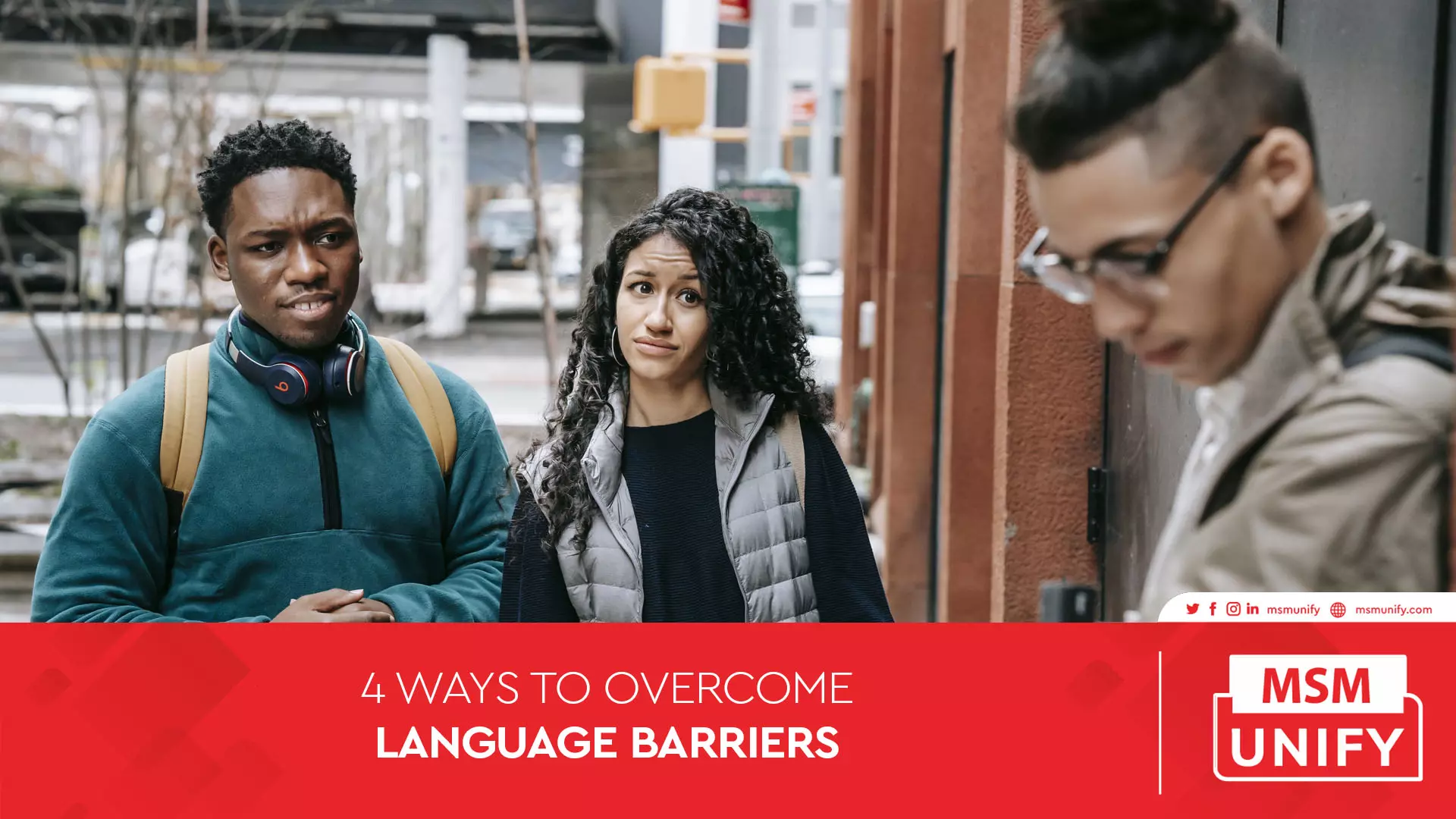Language barrier is a serious obstacle that international students face when settling into a new country. It may result in a lot of consequences that may deter the student’s willingness to learn, socialize, and speak up.
Having little to almost no prior knowledge of the country’s official language can impede the student’s learning and personal growth. If you are a prospective international student and don’t have enough time and resources to be fluent in the host country’s language, you’ll at least want to know how to overcome language barriers.
Overcoming language barriers requires a conscious effort both from you and the people who will surround you during your stay. Here are some methods that you can do to overcome language barriers:
Acknowledging Your Weaknesses
The first step to overcoming any challenge is to acknowledge your weaknesses. Tell yourself that you need to improve to achieve a goal without putting on too much pressure.
Remind yourself that getting used to a new language is a long process, and there will be minor hitches along the way. And when acknowledging your weaknesses, avoid comparing yourself to others.
Measuring your progress based on others wouldn’t give you a realistic look at what you’ve achieved so far. You must recognize that people learn at their own pace and there’s no reason for you to rush.
To get to the core of this stage, here are some tips you can practice:
-
- List down language-related issues that you’re having trouble with. For instance, you can write about your lack of proficiency in vocabulary or your accent. Then, list down a couple of solutions that you think will help.
- Talk to your friends and family members about your issues. It can be tough to deal with language barriers alone. With the right support, you can move towards your goal with realistic goals in mind.
- Never compare yourself to your peers. If they seem to improve better than you, great for them! But it shouldn’t hold you back from learning. Hold your chin high and know that learning a new language is best when learned naturally.
-
- Watch local TV shows or movies. It’s a great way to entertain yourself while you learn new things. Observe the facial expressions of the actors and study the emotions associated with what they say. It’s a nice start.
- Use the power of subtitles! Although not all subtitles are accurate, you can still grasp concrete meaning from them. It’s not the best for vocabulary building, but it’s great for developing comprehension.
- Mirror what you see in the media. Parrot the phrases they say and try to copy the accent as best as you can. It can feel awkward doing it alone, but it can tremendously improve your skills as time moves on.
Must-Have Apps for International Students in Germany
Use Apps and Other Online Tools
While Google Translate isn’t the most accurate translator app, it’s still a useful tool when translating basic words or phrases.
You can also make use of language learning apps such as Duolingo to get a quick grasp of simple sentences and basic grammar. Just remember that these tools and apps may not be able to translate slang and figures of speeches too well, so you may want to ask your friends for confirmation.
A lot of students studying abroad don’t talk much in the fear of being misunderstood. Aside from the methods mentioned above, the key factor in remembering to overcome language barriers is to be courageous enough to speak.
There are thousands of language apps available at your fingertips. Here’s how you can select the best tools for language learning:
-
-
-
-
-
- Pick an app dedicated to vocabulary building. This can range from apps that will teach you new words, phrases, and sentences. It also helps if you choose an app with strong visual elements so you can derive meaning even from images.
Choose a conversation-based app. These platforms allow you to chat with native speakers of that language. These apps are equipped with AI translators so you don’t need to worry about having basic language skills.
Make sure you have beginner-oriented apps as well as more advanced ones. You can start with the beginner apps then move to more intermediate channels. Or you can use them concurrently just to see where your skills are at the moment.
- Pick an app dedicated to vocabulary building. This can range from apps that will teach you new words, phrases, and sentences. It also helps if you choose an app with strong visual elements so you can derive meaning even from images.
-
-
-
Language barriers are serious obstacles for international students, but there are many ways to overcome them. Look through our stories here at MSM Unify overseas education consultancy to learn how you can adjust to life abroad and overcome challenges.
-



























